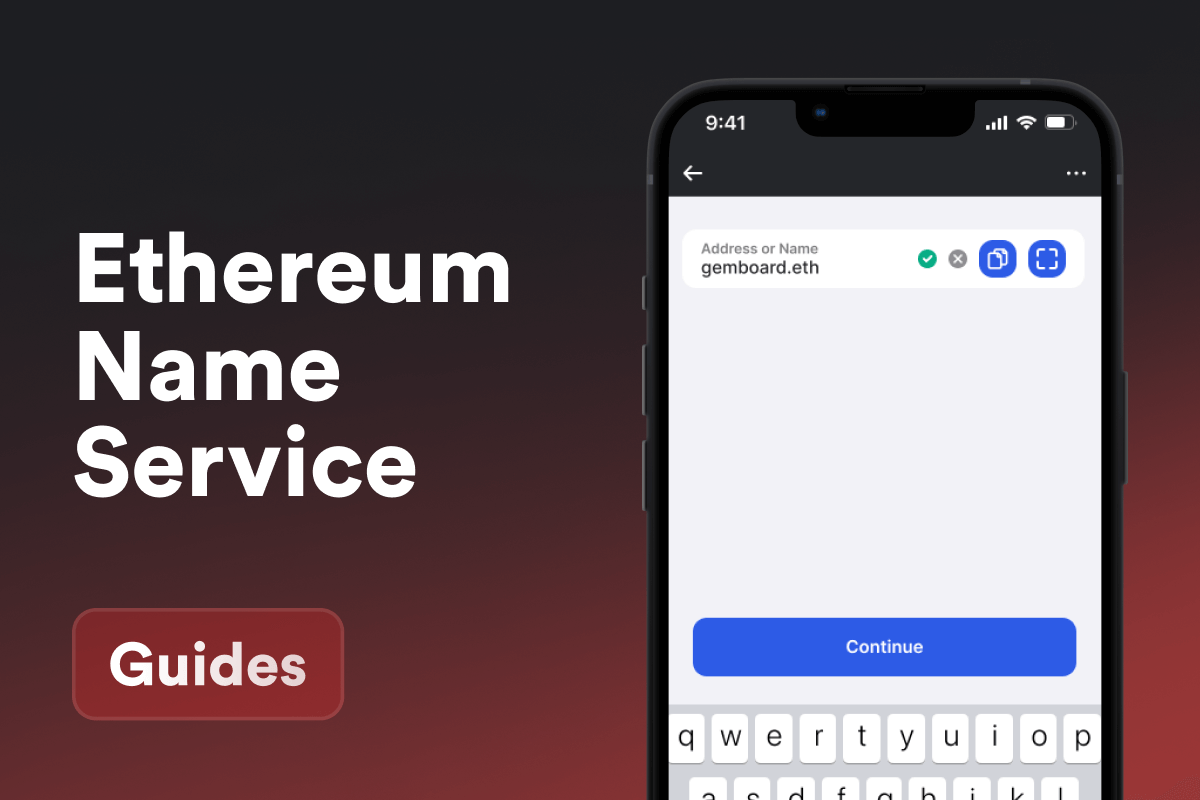
What Is ENS
The Ethereum Name Service (ENS) is a decentralized naming system that operates on the Ethereum blockchain. It allows you to replace long and complicated wallet addresses with simple and memorable names like “yourname.eth.” With ENS, interacting with the blockchain becomes more convenient and accessible for everyday users. Additionally, ENS acts as a Web3 identity passport, allowing users to create a unified and recognizable digital identity across different decentralized platforms. This means your ENS name not only simplifies transactions but also supports personal branding, helping you establish a consistent presence within the Web3 ecosystem.
History of Creation
ENS was launched in 2017 by developers from the Ethereum Foundation. The idea was to create a decentralized domain name system similar to DNS but running on the blockchain. Since its launch, ENS has been continually evolving, attracting attention from developers and users worldwide.
What Makes ENS Unique
The uniqueness of ENS lies in its decentralized nature and the use of Ethereum smart contracts. This ensures a high level of security and resistance to access restrictions. Additionally, ENS allows you to link names not only to wallet addresses but also to other data like content hashes and metadata. Moreover, ENS enables you to link your ENS name to your Ethereum address, NFTs, Web3 profiles, and other digital assets. This way, your ENS name serves as a unified identifier, connecting various assets and simplifying your digital identity within the decentralized ecosystem.
How ENS Differs From DNS
ENS and DNS perform similar tasks by linking names to resources, but they differ in several important ways.
-
Decentralization: Unlike DNS, where domain names are controlled by centralized organizations and can be subject to blocks, ENS gives users full control over their domains. This eliminates the risk of third-party interference and makes the system more democratic.
-
Security: Thanks to the cryptographic mechanisms of the blockchain, ENS provides a high level of protection against hacks. In DNS, domains can be vulnerable to attacks, whereas in ENS, changes are only possible with the owner’s private key, significantly enhancing security.
-
Resistance to Restrictions: In traditional DNS, domains can be blocked or seized by authorities. ENS, being decentralized, has no single point of failure or control. This means no one can arbitrarily take away or block your domain, ensuring freedom of speech and independence from external pressure.
-
Integration with the Blockchain: ENS directly interacts with Ethereum and can use smart contracts for extended functionality. DNS doesn’t have this capability since it’s not integrated with blockchain technologies. This opens up new possibilities for automation, creating decentralized applications, and interaction among various services in the Ethereum ecosystem.
Advantages of ENS
Using ENS makes working with the blockchain simpler and safer for everyone. Here are the main benefits that make ENS attractive to users:
Convenience
ENS turns complex and lengthy wallet addresses into simple and memorable names. This simplifies the process of sending and receiving cryptocurrencies because users no longer need to copy or type long sequences of characters. For example, instead of “0xAB12…34CD,” you can use “yourname.eth,” which greatly reduces the risk of errors. Furthermore, ENS names can serve as your Web3 passport, making it easy to display your digital identity on badges, business cards, and other forms of personal identification. This enhances your visibility and recognition within the blockchain community.
Security
Using ENS reduces the likelihood of accidentally sending funds to the wrong address. When you enter a simple and understandable address, the chance of a typo or mistake is significantly lower. Moreover, the ENS system itself is protected by the cryptographic mechanisms of the blockchain, providing a high level of security for your domains.
Flexibility
ENS allows you to link one name to various resources and services. You can associate your domain not only with an Ethereum address but also with other blockchains, content links, and decentralized websites. This makes your domain a universal identifier on the network.
Compatibility
ENS is supported by many wallets and decentralized applications. This means your ENS domain will be recognized and functional across numerous services, making interaction within the Ethereum ecosystem easier. ENS support encourages wider adoption and use across various platforms.
Resistance to Restrictions and Full Control
You fully own and control your ENS domain. No one can take it away from you without your consent, which is crucial for independence in decentralized services.
Enhance Your Cryptocurrency Experience with ENS
To make using cryptocurrencies more convenient and secure, take advantage of easy-to-remember ENS names, which are supported by Gem Wallet — a self-custodial wallet with open-source code that doesn’t ask for personal information. Instead of long and complex wallet addresses, you can use simple names, which makes sending and receiving assets much easier. Plus, you have full control over your funds and private keys, ensuring maximum security and privacy.
Purchasing Ethereum for ENS
To use ENS, you will need Ethereum tokens. These are required for buying a domain, renewing it, or transferring your ENS domain to another Ethereum address. You’ll also need Ethereum tokens to cover network fees for these transactions. If you don’t have Ethereum yet, you can easily purchase it through Gem Wallet, allowing you to quickly and securely fund your wallet with the necessary tokens.
Here is a concise guide on registering your wallet with an ENS domain:
-
Connect Wallet: Go to the ENS Domains website, select WalletConnect, and connect your wallet.
-
Search for a Name: Enter your desired name, explore available options, and set the duration for the domain.
-
Purchase Domain: Confirm details, approve the transaction, and await Ethereum network confirmation.
For more detailed information, you can refer to the ENS Domain Registration Guide.